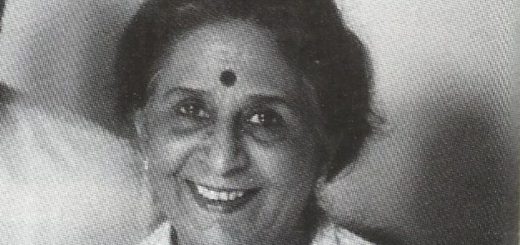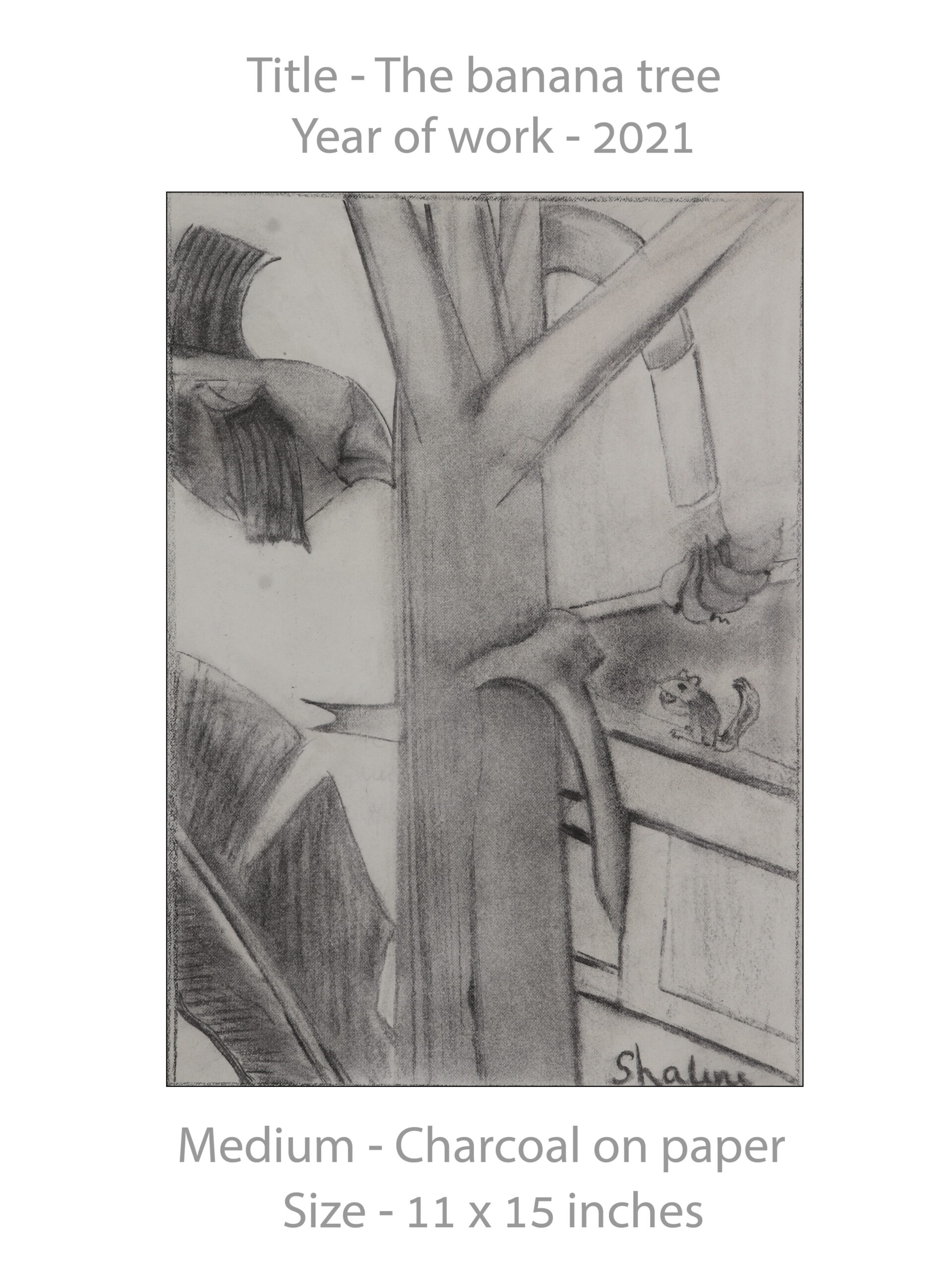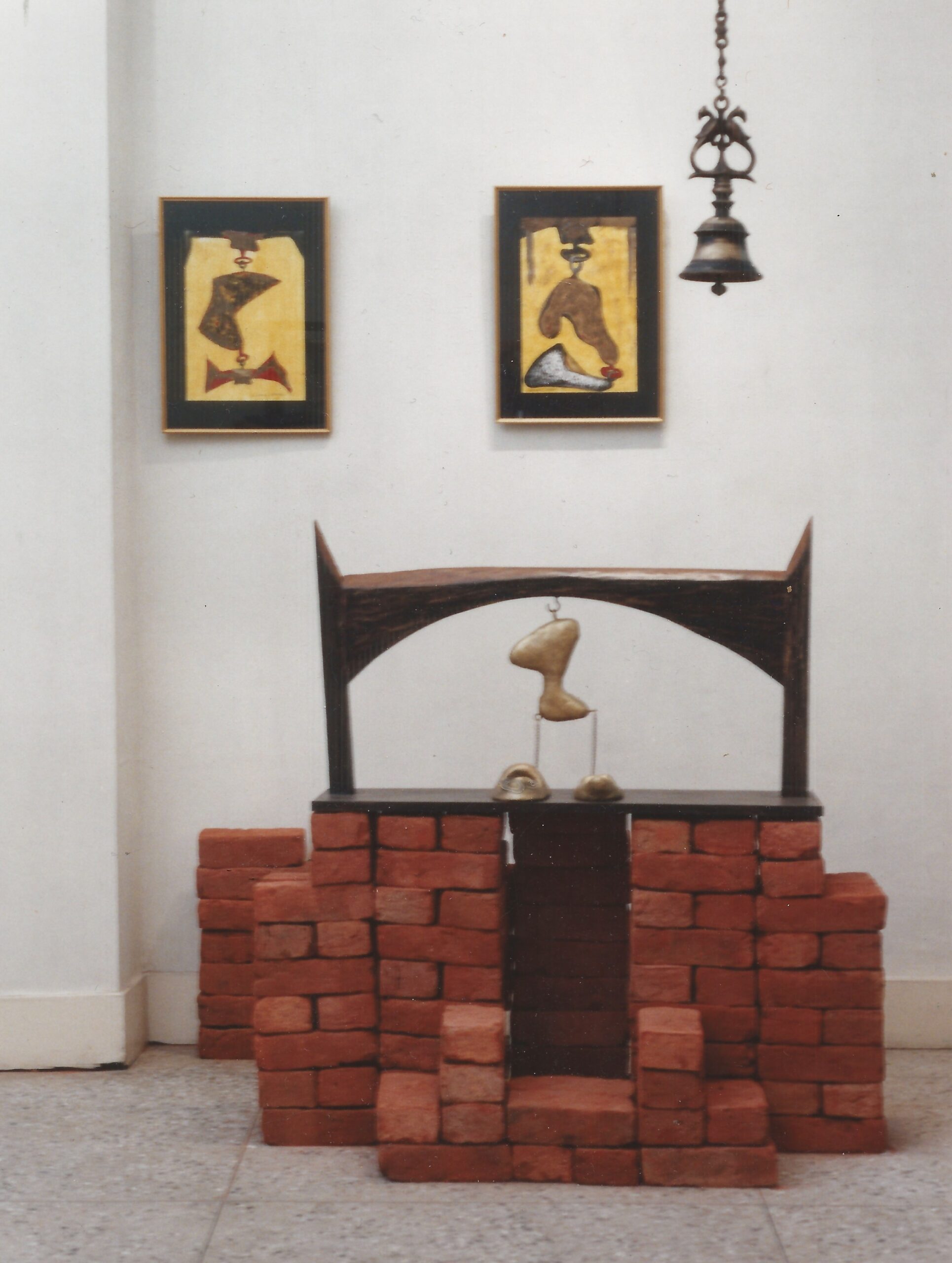Tamasha Na Hua by Bhanu Bharti
The Play
To commemorate Tagore’s 150th anniversary, a theatre group is shown busy, rehearsing his celebrated play Muktdhara. During the rehearsal, an argument about the relevance of the play in the present time erupts among the actors. This argument leads to the famous debate between Tagore and Gandhi, and the issue of man’s freedom in today’s scenario. The discussions leads to many real issues faced today, like the Farraka ‘barrage’ and its effect on Bangladesh agriculture and fisheries, the effects of free economy and consumerist culture on the society as well as ‘Gandhian socialism’ v/s ‘Marxist socialism’. After serious arguments and counter arguments among the actors, the debate remains inconclusive and the play unperformed.
Director’s Note
Men’s aspiration for freedom has engaged the best minds in the realms of religion, philosophy, ethics, science, arts and politics for centuries. With industrial revolution, economy acquired a central place in all the discourses related to the concept of human freedom, in modern age. With this economy, machine and its relation to the development of human society also became greatly significant.
All through the freedom movement of India, there were great minds that were watchful and emphatic in avoiding the narrow nationalistic view of freedom and kept the larger issues of men’s freedom as the central discourse; freedom, not only from a foreign rule, but a complete freedom at all levels – material and spiritual. While the freedom of the country was paramount, universal humanity was never out of sight. This was a unique feature of our ‘national’ movement for freedom. Among these great minds with a universal vision, Mahatma Gandhi and Gurudev Rabindranath Tagore were the most prominent.
I felt that Tagore’s ideologies merited a revisit in the context of the tumultuous modern times. As a tribute to his work and ideas, the play Tamasha Na Hua depicts a group of theatre actors rehearsing one of Tagore’s most popular works – Muktdhara. The narrative is essentially a discussion among the actors on the relevance of the play which leads to a serious debate about the freedom of men in the present political, technological and cultural context.
The Director and Playwright
An NSD alumnus, Bhanu Bharti is best known for his bold innovations and creativity in Indian theatre. In search of an authentic theatre experience, he has engaged in a lot of things, from conventional modes to the freedom of folk idioms, highly stylized Noh and Kabuki theatre to the utterly liberated tribal Bheel ‘Gavari’ style of his native Rajasthan. Such eclectic influences have informed his seminal directorial output like Pashu Gayatri, Amar Beej, Kaal Katha, Taambe ke Keere, Chandrama Singh urf Chamku and Katha Kahi Ek Jale Hue Ped Ne. Indefatigable and multi-dimensional, he is acclaimed as an actor and as author of original plays like Tamasha na Hua, Chandrama Singh urf Chamkoo, Katha Kahi Ek Jale Ped Ne and Nachinai. He has launched many thought provoking events such as the Centenary of Satyagraha, Pravasi Bharatiya Divas, and Celebration of Indian Freedom – Bharat Utsav.
He has been honoured with the Sangeet Natak Akademi Award in the field of theatre as a director and the prestigious ‘Nandikar’, an award for lifetime contribution to theatre.
The Group
Aaj Rangmandal was established in 1984 by Shri Bhanu Bharti in Udaipur, Rajasthan. It created a special niche for itself in the theatre scenario. During this process, a need to involve the urban actors along with tribal actors was felt, to further its creative and innovative pursuits. Thus Aaj – Delhi was found and since then, this unique theatre company consisting of the urban and the tribal actors is constantly involved in its innovative and thought provoking work. Aaj Theatre Company presents a theatre festival of its own productions in Delhi, every year. Some of its most important theatre productions are: Pashugayatri, Amar Beej, Kal Katha, Katha Kahi Ek Jale Ped Ne, Naachni, Mahamayi, Dehantar, Bapu etc.
Playwright & Director – Bhanu Bharti










